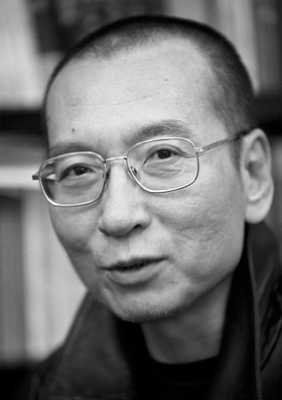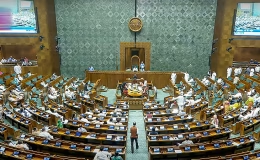International Tibet Network expresses profound grief at the death of Chinese dissident and Nobel Laureate Liu Xiaobo
World governments must strongly and jointly condemn the inhumanity of China’s leadership, and increase pressure for Liu Xia and her brother to travel wherever they wish
Staff of the International Tibet Network [1] Secretariat are devastated to hear that Liu Xiaobo has died less than 3 weeks after news emerged that he had liver cancer. Despite considerable international pressure, Xi Jinping refused to allow Liu Xiaobo and his wife, Liu Xia, to travel overseas for medical treatment or palliative care.
“This is a tragedy of massive proportions” said Tenzin Jigdal, International Tibet Network’s International Coordinator. “China has lost one of the greatest champions for a democratic future; the international community has lost an inspirational advocate of social responsibility, and the Tibet movement has lost a true friend. We are appalled at the inhumane refusal of China’s leaders to allow Liu Xiaobo to obtain timely medical care and taste real freedom, and we send our deepest condolences to Liu Xia and all Liu Xiaobo’s family and friends.”
Liu Xiaobo was China’s best known dissident and only Nobel Peace Laureate. When he was awarded the Nobel Peace Prize in December 2010, Tibet Network said that the Nobel Committee had “illuminated the human and political rights of the people in China and Tibet and created a sense of hope.” Speaking today, Executive Director Alison Reynolds said: “We call on governments around the world to make sure that sense of hope does not die along with Liu Xiaobo. FIrst and foremost, world leaders must jointly and robustly press China to allow Liu Xiaobo’s wife Liu Xia and brother-in-law Liu Hui to go wherever they wish, and they must firmly hold China to account for Liu Xiaobo’s detention and late diagnosis of cancer”.
Liu Xiaobo has been, and will remain, a powerful symbol of China’s appalling record of detaining citizens that participate in discussions about democracy and freedom and its treatment of political prisoners. Two years ago Chinese officials acknowledged verbally to a trusted source that Liu Xiaobo, Tibetan Buddhist leader Tenzin Delek Rinpoche [2] and Uyghur scholar Ilham Tohti [3] were the “top three” political prisoners. Two of these three – Tenzin Delek Rinpoche and Liu Xiaobo – are now dead [4], an appalling indictment of China’s treatment of political detainees.
“Our Governments must not allow any decrease in attention and pressure on China in the aftermath of Liu Xiaobo’s demise; rather the reverse,” said Mandie McKeown, Tibet Network’s Campaigns Coordinator. “To honour him, efforts must be redoubled to secure the release of all human rights defenders held in Chinese detention; Chinese, Tibetan, Uyghur and more. The international community simply cannot allow China to brush this under the carpet and must push China to take urgent, meaningful strides to reform the current political and human rights abuses that are so prevalent”.
Prominent among the many prisoners that world governments should be taking action on are Uyghur scholar Ilham Tohti, Tibetans Tashi Wangchuk and Yeshe Choedron, Chinese human rights lawyer Jiang Tianyong and Hong Kong bookseller Gui Minhai. [5]
Liu Xiaobo had been a long time supporter of Tibet, openly expressing support for greater freedom for the Tibetan people and championing democratic reform in China. [6] In 1996 he was sentenced to three years in a labour camp for writing a joint letter to China’s then President Jiang Zemin supporting Tibetan self-determination and calling for dialogue with the Dalai Lama and is believed to be the first Chinese person to be sentenced for speaking up for Tibet. [7] In March 2008, as the Tibetan Plateau was swept by uprisings, he was a co-author and signatory of “Twelve Suggestions for Dealing with the Tibetan Situation”. [8]
Liu Xiaobo’s 11-year prison sentence was handed down a year after his arrest on 8 December 2008 for his part in writing and promoting ‘Charter 08’, which calls for legal reforms, democracy and protection of human rights in China. [9] Before his sentencing he said in his ‘Final Statement’, “Freedom of expression is the basis of human rights, the source of humanity and the mother of truth. To block freedom of speech is to trample on human rights, to strangle humanity and to suppress the truth.” [10]
Recommendations. As a response to Liu Xiaobo’s death, World Governments must:
- Issue strong joint public statements of condemnation of China’s refusal to permit Liu Xiaobo to travel overseas.
- Jointly demarche China, insisting that Liu Xia and her brother Liu Hui be allowed to go wherever they wish and that they, and friends of Liu Xiaobo, will not be harassed.
- Jointly increase diplomatic interventions on behalf of all other political detainees, bilaterally and in all multilateral fora, including the UN Human Rights Council – especially in the lead up to and during China’s forthcoming Universal Periodic Review – the General Assembly, Summits and Dialogues. Such interventions should include, but not be limited to, Uyghur scholar Ilham Tohti, Tibetans Tashi Wangchuk and Yeshe Choedron, Chinese human rights lawyer Jiang Tianyong and Hong Kong bookseller Gui Minhai.
- Press China to account for Liu Xiaobo’s late diagnosis and for all deaths in political custody, including Tenzin Delek Rinpoche (2015) and Cao Shunli (2014). [11]
Notes:
- International Tibet Network is a global coalition of Tibet-related non-governmental organisations dedicated to ending human rights violations in Tibet and to working actively to restore the Tibetan people’s right under international law to determine their future political, economic, social, religious and Cultural status. See www.tibetnetwork.org for more information.
- Highly respected Tibetan lama and political prisoner, Tenzin Delek Rinpoche, died in custody in July 2015, having served over 13 years imprisoned for a crime he did not commit. He was known to be in extremely poor health with a serious heart condition and high blood pressure, and was eligible for medical parole, for which his family had made an official application in 2014. The specific cause of his death remains unknown. https://tibetnetwork.org/tenzin-delek-rinpoche-death-in-a-chinese-prison/.
- Ilham Tohti, “a well regarded ethnic Uyghur economist and peaceful critic of the Chinese government, was sentenced to life in prison [in September 2014] by the Xinjiang People’s High Court for alleged “separatism” after a grossly unfair trial. Tohti and his family had already endured years of harassment and periods of house arrest by state agents”. Human Rights Watch https://www.hrw.org/news/2016/09/20/china-wants-you-forget-ilham-tohti
- See note 2.
- For more information about these cases: Ilham Tohti (see note 3)
Tashi Wangchuk: https://tibetnetwork.org/2017tenzindelekmedalcourageaward/
Yeshe Choedron: https://tibetnetwork.org/yeshe-choedron-awarded-the-inaugural-tenzin-delek-rinpoche-medal-of-courage/
Jiang Tianyong: https://www.amnesty.org/en/latest/campaigns/2017/07/china-lawyers-crackdown-two-years-torment-continues/
Gui Minhai: http://freeguiminhai.org/
- Liu Xiaobo’s essay “The Right of Self-government” in 2000 supported the Dalai Lama’s position on Tibetan autonomy: “The Dalai Lama raised the demands of Tibet’s autonomy, not only in moral terms, but also in reality expressed the sincerity of peace negotiations.” In Chinese http://mqxd.org/archives/215 (Google Translate).
- See September 1996 of this entry on the Central Tibetan Administration’s website http://tibet.net/important-issues/sino-tibetan-dialogue/an-overview-of-sino-tibetan-dialogue/sino-tibetan-dialogue-confrontation-1994-2001/
- See https://www.hrw.org/news/2008/03/21/twelve-suggestions-dealing-tibetan-situation
- Background and translations of Liu Xiaobo’s letter to Jiang Zemin and the Charter ’08 text and signatories are available on High Peaks, Pure Earth at http://highpeakspureearth.com/2008/charter-08/
- Liu Xiaobo’s ‘I have No Enemies: My Final Statement’ was read at the Nobel Prize ceremony https://www.nobelprize.org/nobel_prizes/peace/laureates/2010/xiaobo-lecture.html by Liv Ullman. Translation by Human Rights in China.
- https://www.theguardian.com/world/2014/mar/14/china-activist-cao-shunli-dies-human-rights
Contacts: Tenzin Jigdal, International Coordinator: + 91 9882 255516
Alison Reynolds, Executive Director: + 44 7711 843884
Mandie McKeown, Campaigns Coordinator: + 44 7748 158618




